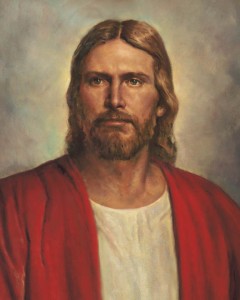In an earlier post I explained that the Quorum of the Twelve Apostles becomes the highest body of leadership of The Church of Jesus Christ of Latter-day Saints (otherwise known as “the Mormons”) upon the death of President Gordon B. Hinckley and the subsequent dissolving of the First Presidency. A question that many people may have involves priesthood authority.
 The Church of Jesus Christ of Latter-day Saints claims to have priesthood authority from Jesus Christ Himself. According to www.lds.org:
The Church of Jesus Christ of Latter-day Saints claims to have priesthood authority from Jesus Christ Himself. According to www.lds.org:
The priesthood is the eternal power and authority of God. Through the priesthood God created and governs the heavens and the earth. Through this power He redeems and exalts His children, bringing to pass “the immortality and eternal life of man” (Moses 1:39). God gives priesthood authority to worthy male members of the Church so they can act in His name for the salvation of His children. Priesthood holders can be authorized to preach the gospel, administer the ordinances of salvation, and govern the kingdom of God on the earth.
So, if a prophet has special priesthood authority that allows him to act as the prophet, what happens to that authority when he dies? How does the next prophet receive that authority if the last prophet has already died?
President Gordon B. Hinckley, who had been serving as our prophet and as the President of the Church at the time of his death on January 27, explained how this works in an address he gave in 1992:
When a man is ordained to the apostleship and set apart as a member of the Council of the Twelve, he is given the keys of the priesthood of God. Each of the fifteen living men so ordained holds these keys. However, only the President of the Church has the right to exercise them in their fulness. He may delegate the exercise of various of them to one or more of his Brethren. Each has the keys but is authorized to use them only to the degree granted him by the prophet of the Lord. (Gordon B. Hinckley, “The Church Is on Course,” Ensign, Nov 1992, 53)
So each of the Apostles holds all of the priesthood keys. This was also true in Joseph Smith’s day, Brigham Young’s day, and so on. When the current prophet dies, the Twelve Apostles hold those priesthood keys necessary to administer the activities of the Church.
President Hinckley’s reference to “fifteen living men so ordained” refers to the Quorum of the Twelve Apostles, plus three members of the First Presidency (the living prophet with his two counselors). At the time of this writing, after the death of President Hinckley but before the reorganization of the First Presidency, there are fourteen ordained apostles. For more information on how this works, see my earlier post entitled “Who Stands at the Head of the Mormon Church?”
President Hinckley continued:
My Brethren of whom I have spoken are Apostles of the Lord Jesus Christ. I bear witness of their integrity. I bear witness of their faith. I bear witness of the voice of inspiration and revelation in their calls. Every one is a man of tested strength. But the greatest of these strengths lies in the acknowledgment that he must have divinely given direction and blessing if he is to perform acceptably.
Now, in conclusion, do you believe this body of men would ever lead this Church astray? Remember whose church this is. It carries the name of the Lord Jesus Christ, who stands as its head. His is the power to remove any found remiss in his duty or who is teaching that which is not in harmony with His divine will. (Gordon B. Hinckley, “The Church Is on Course,” Ensign, Nov 1992, 53)
It is important to remember that the Lord alone has power over life and death. Furthermore, as President Hinckley testified, each of the members of the Quorum of the Twelve has proven to be faithful to the Lord and has tremendous experience in Church leadership. While I am confident that any one of them is capable of leading the Church under the direction of the Lord, the Lord Himself chooses who acts as His prophet on earth at any given time. And Jesus Christ Himself stands at the head of the Church.

